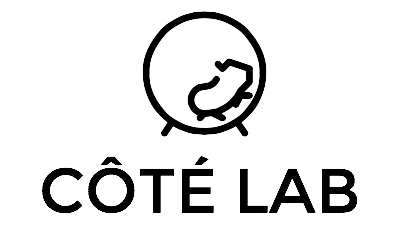Intro
Marie-Pascale CÔTÉ
Assistant Professor, Neurobiology Department, Drexel University College of Medicine
Intro
Marie-Pascale CÔTÉ
Assistant Professor, Neurobiology Department, Drexel University College of Medicine
Our research focuses on plasticity of the spinal networks after spinal cord injury (SCI). We are particularly interested in the modifications that lead to impairment of motor function following injury and activity-dependent mechanisms that assist in functional recovery.
Activity-based therapies are routinely integrated into rehabilitation programs to induce repetitive activation of the neuromuscular system and facilitate functional recovery after spinal cord injury (SCI).
The objective of our research is to investigate how motor activity contributes to functional recovery after SCI. A better understanding of the mechanisms at play is crucial for the design of optimized rehabilitation strategies. Among the beneficial effects of exercise is a reduction of hyperreflexia in proprioceptive and nociceptive pathways that would otherwise lead to spasticity and neuropathic pain. The precise mechanism by which exercise regulates spinal reflex pathways and facilitates sensorimotor recovery is poorly understood.
We use a multidisciplinary approach that includes in vivo electrophysiology (intramotoneuronal recordings in the spinal cord, electromygrams, etc), magnetic stimulation, laser capture, western blotting and PCR analysis to evaluate synaptic and functional changes occurring in the spinal cord in response to exercise (i.e. step and bicycle-training) after SCI.
Our research has direct relevance to the design and implementation of future treatment and rehabilitation programs for SCI. Defining the involvement of specific molecular pathways in both the impairment and recovery of spinal excitability and locomotion after SCI is critical to identify possible new targets to enhance pharmacological management of SCI and improve locomotor function when combined with rehabilitation programs.
Our ongoing research is supported by the Spinal Cord Research Center at Drexel University, the National Institute for Neurological Disease and Stroke (NINDS, NIH) and the Craig H. Neilson Foundation



